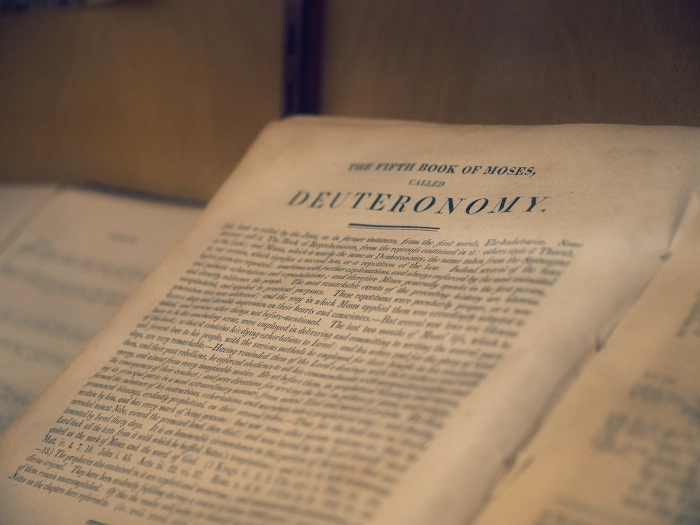Christ in Deuteronomy

The Book of Deuteronomy, the fifth book of the Old Testament, presents a distinctive perspective on the portrayal of Christ. Deuteronomy, meaning "second law," primarily consists of Moses' farewell addresses to the Israelites before they enter the Promised Land. While not as overt in its Messianic themes as some other biblical texts, Deuteronomy contains elements that can be interpreted as foreshadowing and pointing toward Christ.
One central aspect is the prophetic role attributed to Moses. In Deuteronomy 18:15, Moses declares, "The Lord your God will raise up for you a prophet like me from among you, from your brothers—it is to him you shall listen." This prophecy is later cited in the New Testament, specifically in Acts 3:22-23, where Peter identifies Jesus as the fulfillment of Moses' words. The portrayal of Christ as the ultimate prophet, speaking the words of God and leading people to a deeper understanding of divine truth, finds its roots in this declaration from Deuteronomy.
Moreover, Deuteronomy emphasizes the importance of obedience to God's commands. In Deuteronomy 6:4-5, Moses delivers the Shema, a fundamental affirmation of monotheism: "Hear, O Israel: The Lord our God, the Lord is one. Love the Lord your God with all your heart and with all your soul and with all your strength." Jesus later reaffirms this commandment, declaring it to be the greatest in Mark 12:29-30. The portrayal of Christ as the embodiment of love and the one who perfectly fulfills the law echoes the sentiments expressed in Deuteronomy.
The theme of covenant plays a significant role in Deuteronomy, with Moses reiterating the covenant between God and Israel. The emphasis on faithfulness and obedience within this covenant foreshadows the new covenant inaugurated by Christ. In the Last Supper, Jesus establishes the new covenant in his blood, as mentioned in Luke 22:20 and echoed in 1 Corinthians 11:25. The parallels between the covenantal language in Deuteronomy and the fulfillment of the new covenant through Christ provide a profound connection between the two.
Deuteronomy also introduces the concept of blessings and curses based on obedience or disobedience to God's commands. This framework finds resonance in the New Testament, particularly in Galatians 3:13-14, where Christ is portrayed as the one who redeems believers from the curse of the law. The idea that Christ became a curse for humanity, taking on the consequences of disobedience, aligns with the themes of blessings and curses outlined in Deuteronomy.
Additionally, the emphasis on justice and righteousness in Deuteronomy aligns with the portrayal of Christ as the righteous and just ruler. In the New Testament, Jesus is frequently depicted as the embodiment of justice and righteousness, fulfilling the messianic expectations set forth in Deuteronomy.
In summary, the Book of Deuteronomy contributes to the portrayal of Christ through its prophetic anticipation of a future prophet like Moses, its emphasis on the importance of obedience to God's commands, its covenantal language, and its exploration of blessings and curses based on adherence to the law. While not as explicitly Messianic as some other biblical books, Deuteronomy provides a foundational framework that finds its fulfillment in the person and work of Jesus Christ.